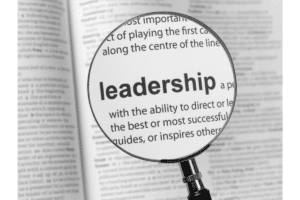Are you intrigued by the concept of continuous self-improvement through learning? Lifelong learning, as defined by experts, is the ongoing, voluntary, and self-motivated pursuit of knowledge for personal or professional growth. In our rapidly evolving world, the significance of lifelong learning cannot be overstated. It plays a crucial role in enhancing individual competitiveness, employability, social inclusion, active citizenship, and personal development.
Imagine a life where you are continuously expanding your horizons, acquiring new skills, and staying relevant in a dynamic environment. Lifelong learning empowers individuals to adapt to change, seize opportunities, and lead fulfilling lives. Whether you are honing your expertise in a specific field or exploring diverse subjects out of sheer curiosity, the journey of lifelong learning is both enriching and empowering.
For those committed to personal and professional growth, embracing lifelong learning is not just a choice but a strategic advantage in today’s knowledge-based economy. As you embark on this journey of discovery and growth, remember that each new piece of knowledge gained is a stepping stone towards a brighter and more fulfilling future.
The Benefits of Lifelong Learning
Engaging in lifelong learning offers a multitude of advantages that extend beyond just acquiring new knowledge. Let’s delve into the personal growth, career advancement, adaptability, and resilience benefits that come with embracing learning throughout life.
Personal Growth and Self-Improvement
Lifelong learning serves as a catalyst for personal growth and self-improvement. By continuously seeking new information and skills, individuals expand their knowledge base, leading to heightened self-awareness and confidence. This continuous pursuit of learning not only boosts one’s intellect but also instills a sense of accomplishment and fulfillment. Moreover, staying mentally engaged through learning activities sharpens cognitive abilities and enhances overall well-being. It’s like nurturing a garden – the more you water and tend to it, the more it flourishes.

Career Advancement
In the realm of professional development, lifelong learning plays a pivotal role in propelling individuals towards greater career prospects. Acquiring new skills and knowledge not only keeps you abreast of industry trends but also opens doors to new opportunities. By continually expanding your expertise and building a robust professional network, you increase your marketability and potential for career growth. In today’s rapidly evolving job market, being a lifelong learner is akin to future-proofing your career – ensuring you stay relevant and competitive regardless of industry changes.
Adaptability and Resilience
The ability to adapt to change and bounce back from setbacks is crucial in both personal and professional spheres. Lifelong learning cultivates adaptability by fostering a growth mindset that embraces challenges as opportunities for growth. By constantly seeking to learn and innovate, individuals develop the flexibility to navigate uncertainties with confidence and resilience. Think of it as sharpening a blade – the more you hone your skills and embrace new perspectives, the more equipped you become to tackle whatever curveballs life throws your way.
Embracing lifelong learning is not just a choice; it’s a mindset that opens doors to endless possibilities for personal enrichment, career advancement, and resilience in the face of change. Whether you’re exploring a new hobby, upskilling for your profession, or embracing challenges head-on, the journey of learning never truly ends – and that’s where its true magic lies.
Strategies for Effective Lifelong Learning
Embracing lifelong learning requires implementing effective strategies to continually expand knowledge and skills. Engaging in lifelong learning not only enhances personal growth but also fosters professional development. Here are some actionable strategies to optimize your lifelong learning journey:
Cultivate a Growth Mindset
Cultivating a growth mindset is fundamental to lifelong learning. Embrace challenges as opportunities for growth rather than obstacles. Learn from failures and setbacks, using them as stepping stones toward improvement and advancement. Adopting a growth mindset empowers individuals to persist in the face of difficulties and continuously seek new learning opportunities.
Set SMART Goals
Setting SMART goals is a strategic approach to guide your lifelong learning endeavors. SMART goals are Specific, Measurable, Achievable, Relevant, and Time-bound. By defining clear objectives for learning, you can track progress, stay motivated, and focus your efforts on achieving tangible outcomes. Align your SMART goals with your aspirations and adapt them as you progress on your learning path.
Explore Various Learning Methods
Diversifying your learning methods enhances the depth and breadth of your knowledge acquisition. Explore different avenues such as formal education, self-study, and experiential learning. Enroll in courses, engage in self-paced learning, and seek real-world experiences to gain diverse perspectives and skills. Embracing various learning approaches keeps your learning experience dynamic and enriching.
Leverage Technology
Incorporating technology into your learning journey opens up a world of possibilities and resources. Utilize online courses, virtual learning platforms, and educational apps to access information conveniently and interactively. Technology facilitates flexible learning opportunities, allowing you to customize your learning pace and explore diverse subjects. Embrace digital tools to enhance your learning efficiency and effectiveness.
Build a Support Network
Building a support network is crucial for sustaining motivation and fostering continuous learning. Connect with communities of learners, mentors, and coaches to exchange insights, seek guidance, and share experiences. Engaging with like-minded individuals provides encouragement, accountability, and opportunities for collaborative learning. Surround yourself with a supportive network to navigate challenges and celebrate achievements together.
Embark on your lifelong learning journey with a growth mindset, structured goals, diverse learning methods, technology integration, and a strong support network. By implementing these strategies, you will elevate your learning experience, maximize your potential, and embrace the transformative power of continuous learning. Stay committed to lifelong learning, and unlock a world of knowledge and growth opportunities.
Overcoming Barriers to Lifelong Learning
Embarking on a journey of lifelong learning is a noble pursuit, but it’s not without its challenges. Here are some common barriers learners face and practical solutions to overcome them.
Time Management
When it comes to balancing learning with other commitments, effective time management is key. Here are some strategies to help you make the most of your time:
- Set SMART goals to give your learning direction and purpose.
- Create a schedule that allocates specific time for learning activities.
- Identify your optimal study environment to maximize focus and productivity.
- Learn to prioritize tasks to ensure you’re allocating time to what matters most.
- Utilize planning techniques and tools to stay organized and on track.
For more tips on managing your time effectively as a lifelong learner, check out this resource on time management.

Motivation and Discipline
Staying motivated and disciplined throughout your lifelong learning journey can be challenging. Here are some techniques to help you maintain your drive and focus:
- Understand your personal motivations for learning and keep them at the forefront.
- Recognize the value and benefits of continuous learning in achieving your goals.
- Cultivate self-discipline by setting clear expectations and sticking to them.
- Break down your learning goals into manageable tasks to maintain momentum.
- Celebrate small victories along the way to boost your motivation.
To delve deeper into developing self-motivation and discipline for lifelong learning, refer to this insightful article.
Financial Considerations
Finances can often pose a significant barrier to pursuing learning opportunities. Here are some ways to manage the financial aspect of lifelong learning:
- Explore free or low-cost learning resources available online and in your community.
- Consider budgeting for educational expenses by setting aside a specific amount each month.
- Look into scholarships, grants, or employer-sponsored programs that can help offset costs.
- Prioritize learning opportunities that offer a strong return on investment in terms of skill development and career advancement.
- Stay informed about financial assistance options tailored to lifelong learners, such as the Lifelong Learning Plan.
For a deeper understanding of innovative financing mechanisms for lifelong learners, visit this source.
By addressing these common barriers and implementing the suggested solutions, you can navigate the obstacles to lifelong learning with confidence and determination.
FAQs
Lifelong learning, an ongoing process of acquiring knowledge and skills throughout one’s life, often raises common questions among individuals dedicated to continual personal and professional growth. Let’s delve into some of these frequently asked questions to provide clarity and insights.
What is Lifelong Learning?
Lifelong learning refers to the continuous pursuit of knowledge and skills beyond traditional classroom settings. It involves a proactive approach to self-improvement and development, catering to personal interests and professional aspirations. By engaging in lifelong learning, individuals can adapt to evolving trends, explore new passions, and enhance their overall quality of life.
Why is Lifelong Learning Important?
Embracing lifelong learning offers numerous benefits, from expanding intellectual horizons to boosting career prospects. It enables individuals to stay relevant in a rapidly changing world, fostering adaptability and innovation. Lifelong learners often exhibit greater confidence, problem-solving abilities, and resilience in the face of challenges. Moreover, continuous learning enhances creativity, critical thinking, and overall cognitive function.
How Can One Pursue Lifelong Learning?
There are various avenues to embark on a lifelong learning journey. Enrolling in online courses, attending workshops, joining community classes, and seeking mentorship are popular options. Leveraging digital resources, such as e-books, podcasts, and educational websites, provides convenient and flexible learning opportunities. Networking with like-minded individuals and engaging in discussions can also enrich the learning experience.
What are the Benefits of Lifelong Learning?
The benefits of lifelong learning are multifaceted. Apart from acquiring new knowledge and skills, lifelong learners experience personal growth, increased self-esteem, and a sense of fulfillment. Continued learning contributes to career advancement, widening job prospects and enhancing professional competence. Furthermore, lifelong learning fosters a curious mindset, encouraging exploration, discovery, and lifelong intellectual stimulation.
Staying committed to lifelong learning opens doors to new possibilities, enriching one’s personal and professional journey. By embracing a mindset of continuous growth and development, individuals can unlock their full potential and lead fulfilling lives enriched with knowledge and experiences.
Conclusion
Embracing the journey of lifelong learning is not just a choice; it’s a mindset that propels us towards personal and professional growth. By continuously seeking knowledge and skills, we not only enhance our employability and competitiveness but also enrich our lives with boundless opportunities for self-improvement.
Lifelong learning is a powerful tool that opens doors to new experiences, broadens perspectives, and fosters a sense of fulfillment in our endeavors. Let us commit to the path of continuous learning, embracing challenges, and seizing every chance to expand our horizons. Remember, the learning never stops, and the possibilities are endless. Here’s to a future filled with growth, achievement, and endless curiosity.












